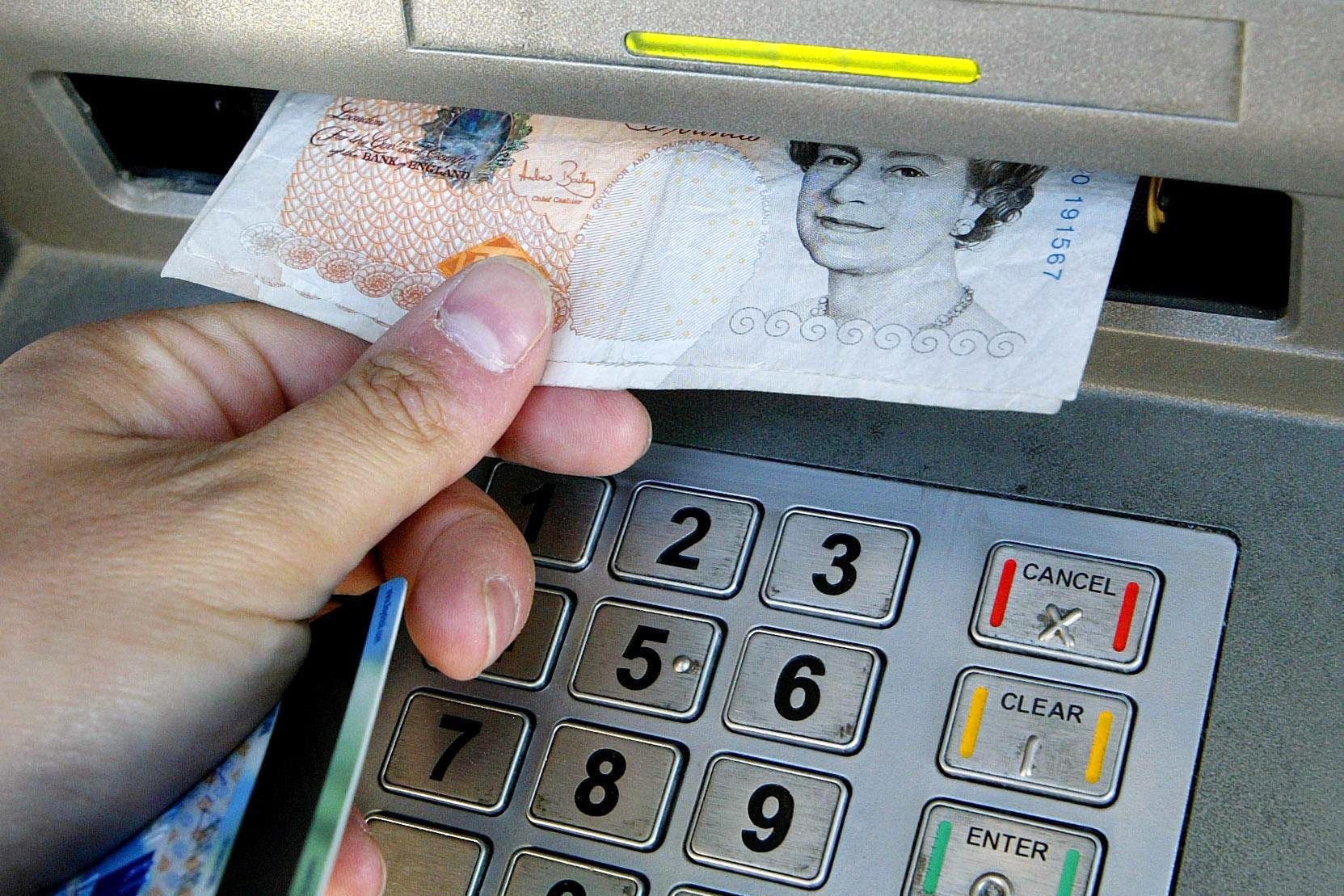£235m expected to be withdrawn from ATMs as voters go to polls on Thursday
The predicted ATM withdrawal total is expected to be lower than it was on December 12 2019, when the last general election was held.

Your support helps us to tell the story
From reproductive rights to climate change to Big Tech, The Independent is on the ground when the story is developing. Whether it's investigating the financials of Elon Musk's pro-Trump PAC or producing our latest documentary, 'The A Word', which shines a light on the American women fighting for reproductive rights, we know how important it is to parse out the facts from the messaging.
At such a critical moment in US history, we need reporters on the ground. Your donation allows us to keep sending journalists to speak to both sides of the story.
The Independent is trusted by Americans across the entire political spectrum. And unlike many other quality news outlets, we choose not to lock Americans out of our reporting and analysis with paywalls. We believe quality journalism should be available to everyone, paid for by those who can afford it.
Your support makes all the difference.Around £235 million is expected to be withdrawn from ATMs on Thursday as people fit trips to cash machines around casting their General Election votes, according to a forecast from UK cash access and cash machine network Link.
The network expects the total to be lower than it was on December 12 2019, when the last general election was held.
On that date, which resulted in Boris Johnson returning to Downing Street as Conservative prime minister, £322 million was withdrawn. Link said that early December tended to be a slightly busier time for cash machine withdrawals.
- June 8 2017, £356 million
- December 12 2019, £322 million
- July 4 2024, £235 million (predicted figure)
And on the general election date of June 8 2017, which led to the then-prime minister Theresa May’s election gamble backfiring as the Conservatives’ Commons majority was erased, some £356 million was taken out of ATMs.
On Thursday last week (June 27), £240 million was dispensed from ATMs, according to Link’s figures.
The data applies only to Link transactions, which are made in situations when a bank customer uses an ATM belonging to another provider. The vast majority of ATMs across the UK are connected to the Link network.
Link said that the earlier part of the summer tended to see an upswing in cash machine transactions as people got out and about, but that the network often saw a dip in ATM transactions in August, as many UK residents headed off on holidays abroad.
Early December is normally slightly busier than either early June or July but the vast majority of the fall in ATM use is down to people now using less cash overall and increasingly using cards and their phones to make day-to-day payments
Graham Mott, director of strategy at Link said: “Polling day traditionally itself doesn’t seem to make a huge difference to ATM use when compared to a normal Thursday at that time of year, people seem to fit voting around their normal routine.
“Early December is normally slightly busier than either early June or July but the vast majority of the fall in ATM use is down to people now using less cash overall and increasingly using cards and their phones to make day-to-day payments.”
In 2023, legislation was passed as part of the Financial Services and Markets Act, to protect access to cash.
A recent survey for Link indicated that nearly half (48%) of people expected to see a cashless society in their lifetime.
But according to Link’s data, the average UK adult still withdrew around £1,500 from cash machines last year.
In June, banknotes bearing the King’s portrait started to be issued.
This marked the first time that the sovereign has been changed on the Bank of England’s notes, because the late Queen was the first British monarch to be depicted on a note in 1960.
The new banknotes are co-circulating alongside those featuring the late Queen.
There are more than 4.6 billion Bank of England notes in circulation, worth around £82 billion.
Mr Mott said that 99.8% of UK high streets had free cash access within one kilometre, adding: “Link will also make sure this is still the case by the time of the next general election, whenever that is.”